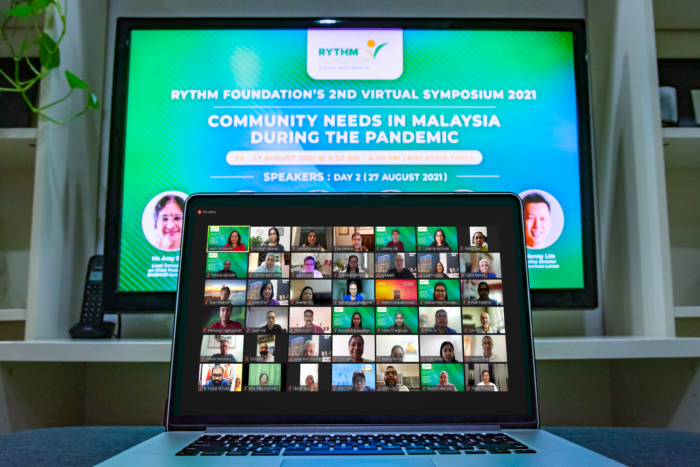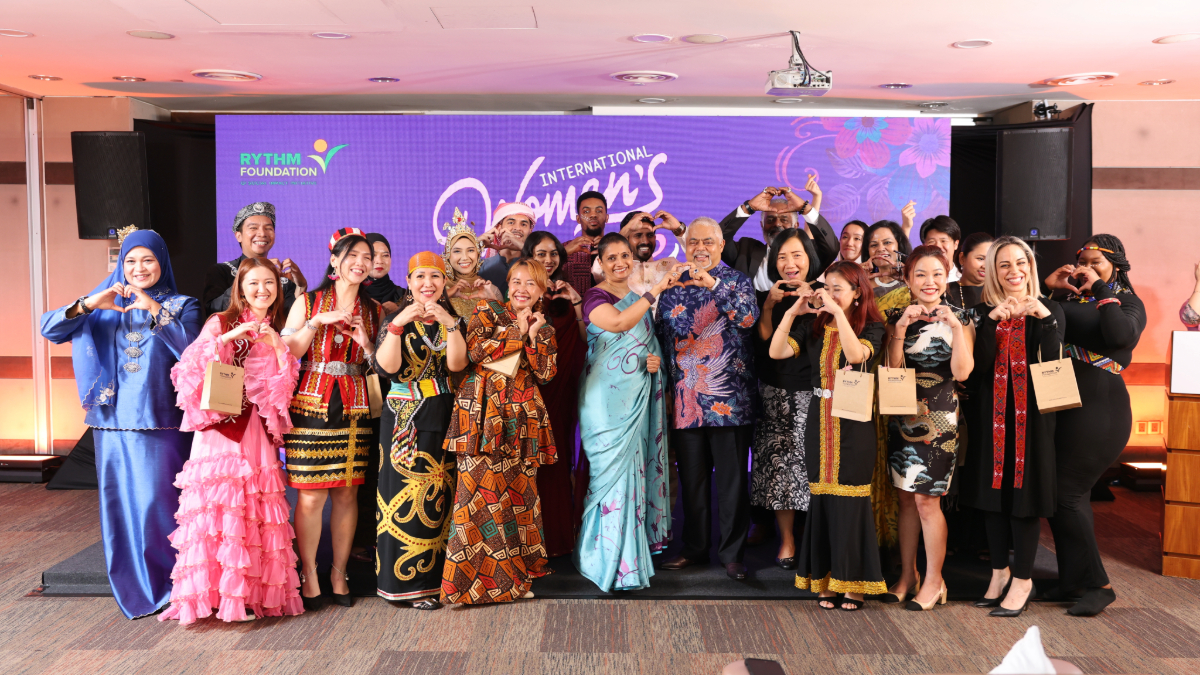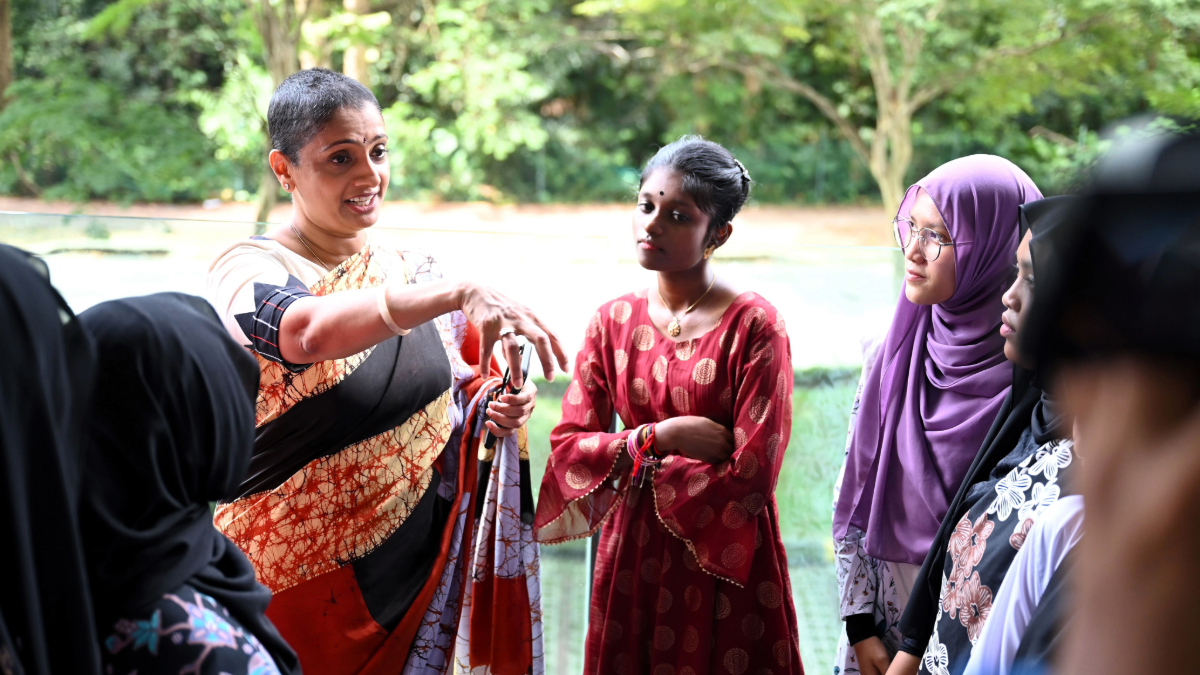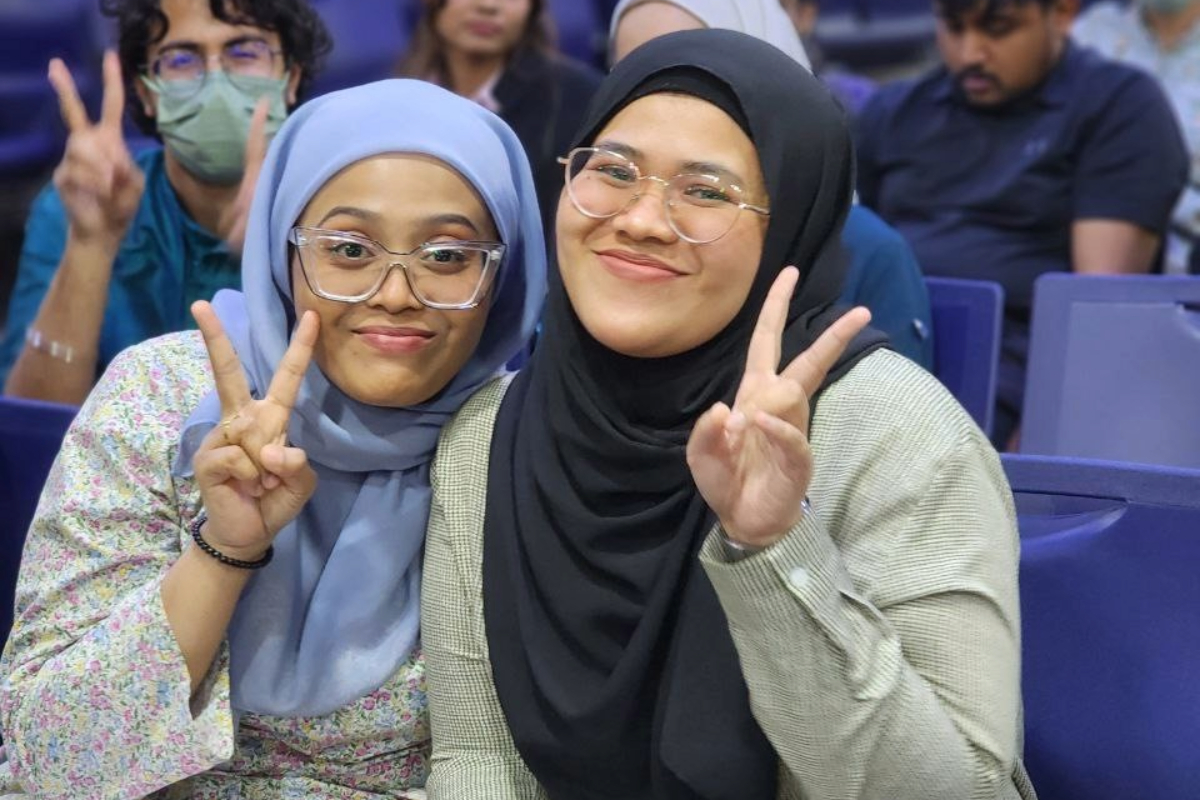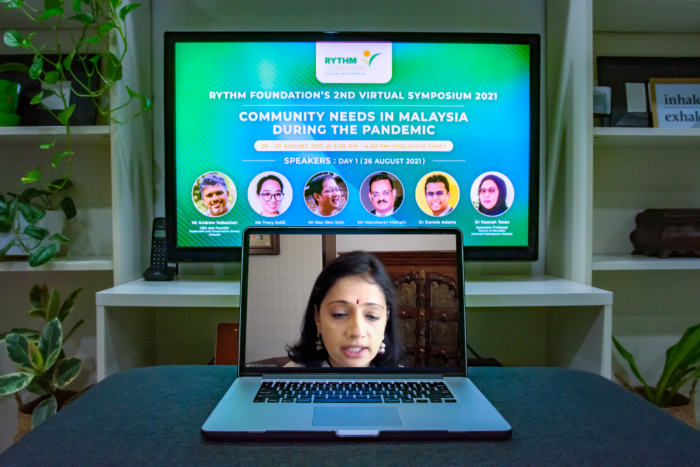 The objective of the symposium was to be a functional platform where various representatives of different segments of society could come together to share their insight from working on the ground with the communities most in need. These insights will be compiled into a position paper that zooms in on the very real issues faced by these communities and outlining informative, comprehensive and practical solutions to manage these issues.
Throughout the 2-day symposium, various ideas were put forth by the speakers who are experts in their field and actively working on the ground to support vulnerable communities since before the COVID-19 pandemic began.
On the topic of aiding the underserved indigenous communities through health and sanitisation amidst the pandemic, speakers Tracy Soidi, a Senior Programme Officer for Good Shepherd Services and Andrew Sebastian the CEO & Founder of Ecotourism and Conservation Society Malaysia (ECOMY), agreed that there needs to be recognition of the indigenous as a vulnerable community and more inclusion of representatives from these communities in discussions about their needs.
The objective of the symposium was to be a functional platform where various representatives of different segments of society could come together to share their insight from working on the ground with the communities most in need. These insights will be compiled into a position paper that zooms in on the very real issues faced by these communities and outlining informative, comprehensive and practical solutions to manage these issues.
Throughout the 2-day symposium, various ideas were put forth by the speakers who are experts in their field and actively working on the ground to support vulnerable communities since before the COVID-19 pandemic began.
On the topic of aiding the underserved indigenous communities through health and sanitisation amidst the pandemic, speakers Tracy Soidi, a Senior Programme Officer for Good Shepherd Services and Andrew Sebastian the CEO & Founder of Ecotourism and Conservation Society Malaysia (ECOMY), agreed that there needs to be recognition of the indigenous as a vulnerable community and more inclusion of representatives from these communities in discussions about their needs.
“Health is a right for everyone whether they are indigenous or not. It’s a human right so we need to look into helping these communities and empowering them to have more of a voice regarding their rights in healthcare,” said Tracy.Also Read: Preparing Malaysian Preschool Indigenous Children For A Smooth Transition To Primary Education On the other hand, speakers Kon Onn Sein, the managing director of Yayasan Kajian dan Pembangunan Masyarakat and Manokaran Mottain, the chief economist of Alliance Bank highlighted the need for economic democracy to decrease the wealth disparity and to address economic systems in order to create a more equitable and financially stable society. Dr. Donnie Adams Paramasivam from Universiti Malaya and Associate Professor Dr. Hasnah Toran from University Kebangsaan Malaysia also zoomed in on the challenges of online learning for special needs children during their sessions, with emphasis on the cooperation between parents and teachers for the students’ well-being.
“Previously, it was that teachers cannot influence what happens at home and parents cannot influence what happens in school. Now we see that there cannot be a division, there needs to be collaboration,” said Dr Donnie.
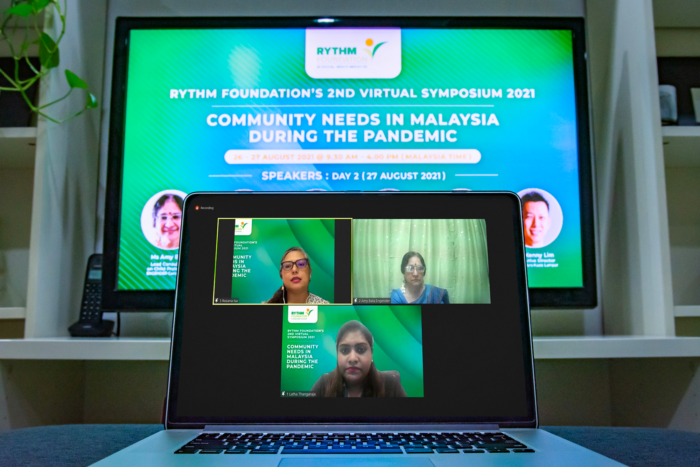 When it came to the subject of gender-based violence and surviving during the pandemic, Amy Bala, the lead on child protection at the Engender Consultancy and Rozana Isa, the executive director of Sisters in Islam, discussed the domestic violence shadow pandemic that has grown alongside COVID19. They emphasised the need for a stronger infrastructure with trained social workers to empower women and families in these situations.
When it came to the subject of gender-based violence and surviving during the pandemic, Amy Bala, the lead on child protection at the Engender Consultancy and Rozana Isa, the executive director of Sisters in Islam, discussed the domestic violence shadow pandemic that has grown alongside COVID19. They emphasised the need for a stronger infrastructure with trained social workers to empower women and families in these situations.
“We need to empower women with the knowledge that they are not second-class citizens and that they have equal rights under the federal constitution,” said Rozana.Maalini Ramalo, the director of social protection of the Development of Human Resources for Rural Areas (DHRRA) & Dr. Hartini Zainudin, child activist and the founder of the Yayasan Chow Kit both highlighted just how dire the situation has been for the stateless community. Dr Hartini stressed that community involvement and advocacy is crucial to highlighting the plight of the stateless to policymakers. Also Read: Stateless Sisters Are In School, Thanks To RYTHM Foundation-DHRRA Malaysia Initiative
 Whilst mental health might be the last thing on most people’s minds amidst the challenges of living through the pandemic, the session on the topic proved otherwise as we spoke to Dr. Raagidhasakti, the managing director of the Green Wings Psychology Center and Kenny Lim, the executive director of Befrienders Kuala Lumpur. The last session of the symposium saw these experts discuss the urgent need for imparting emotional literacy skills to build the mental resilience of society as well as the importance of raising awareness to breakdown deeply ingrained stigmas and myths attached to mental health.
The symposium certainly proved to be fruitful for attendees of the symposium. Head of Purchasing & Product Development of QNET, Evelyn Chan said it was an insightful two days for her: “As a single parent, I could totally relate to the topics being discussed, and I found the sessions on education, statelessness, and mental health the most captivating. The ideas and perspectives shared by the guest speakers were definitely beneficial,” she said. Another attendee, Gunasegaran Kandaswamy, a MYKITA Advisor, also shared that he is eagerly anticipating the recommendations from the symposium that will be put forth to the relevant agencies, “I hope we get to see some of these resolutions suggested today implemented.”
The findings from both the symposium sessions will supplement a summary report comprising the issues raised by NGOs, discussion points, and recommendations for addressing these concerns. The report will be shared with relevant stakeholders and policymakers in the hopes of facilitating more informed decisions and tailoring appropriate strategic planning to manage crucial issues that have a social and economic impact on the communities in Malaysia.
Whilst mental health might be the last thing on most people’s minds amidst the challenges of living through the pandemic, the session on the topic proved otherwise as we spoke to Dr. Raagidhasakti, the managing director of the Green Wings Psychology Center and Kenny Lim, the executive director of Befrienders Kuala Lumpur. The last session of the symposium saw these experts discuss the urgent need for imparting emotional literacy skills to build the mental resilience of society as well as the importance of raising awareness to breakdown deeply ingrained stigmas and myths attached to mental health.
The symposium certainly proved to be fruitful for attendees of the symposium. Head of Purchasing & Product Development of QNET, Evelyn Chan said it was an insightful two days for her: “As a single parent, I could totally relate to the topics being discussed, and I found the sessions on education, statelessness, and mental health the most captivating. The ideas and perspectives shared by the guest speakers were definitely beneficial,” she said. Another attendee, Gunasegaran Kandaswamy, a MYKITA Advisor, also shared that he is eagerly anticipating the recommendations from the symposium that will be put forth to the relevant agencies, “I hope we get to see some of these resolutions suggested today implemented.”
The findings from both the symposium sessions will supplement a summary report comprising the issues raised by NGOs, discussion points, and recommendations for addressing these concerns. The report will be shared with relevant stakeholders and policymakers in the hopes of facilitating more informed decisions and tailoring appropriate strategic planning to manage crucial issues that have a social and economic impact on the communities in Malaysia.
“Surviving the pandemic is one thing but how we meet and greet the new norm is another thing. Therein lies our true vindication in terms of how prepared we will be for the new norm with this blueprint for the future,’ said Datuk Vijay Eswaran, the chairman of the QI Group.
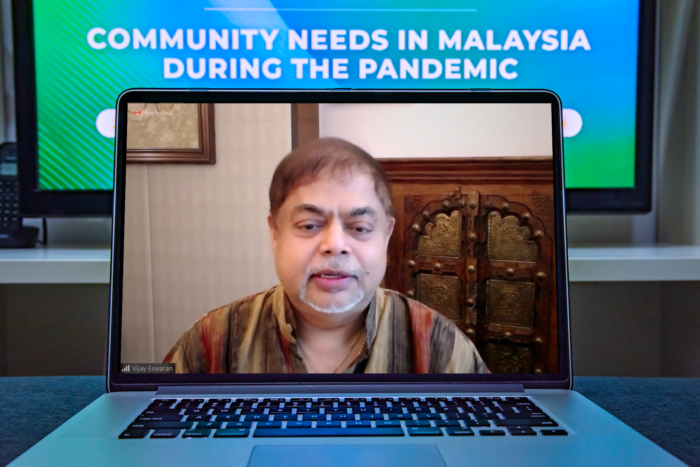 During the closing ceremony of the symposium, Datin Sri Umayal Eswaran said, “The purpose of this second symposium is to support the government of Malaysia’s efforts to mitigate the direct and indirect impact of COVID-19 on vulnerable groups as well as the communities at large through the generation of high-quality thoughts and recommendations of stakeholders. Deriving input from individuals and groups who have gotten their feet wet on the ground and approaching the matter in academic ways makes a remarkable difference.”
During the closing ceremony of the symposium, Datin Sri Umayal Eswaran said, “The purpose of this second symposium is to support the government of Malaysia’s efforts to mitigate the direct and indirect impact of COVID-19 on vulnerable groups as well as the communities at large through the generation of high-quality thoughts and recommendations of stakeholders. Deriving input from individuals and groups who have gotten their feet wet on the ground and approaching the matter in academic ways makes a remarkable difference.”

